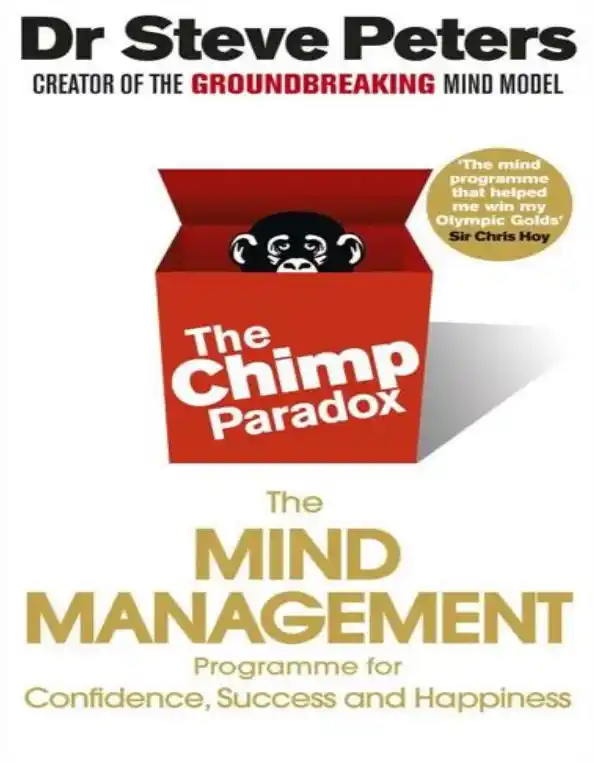
Your mind can be your best friend—or your worst enemy. In The Chimp Paradox , Professor Steve Peters explains how to understand and manage the emotional ‘Chimp’ inside your brain. With a simple yet powerful model, this book teaches you how to stay calm, make better decisions, and live a more balanced, successful life.
In The Chimp Paradox , British psychiatrist and mental health expert Professor Steve Peters introduces a powerful and accessible model for understanding the mind and managing thoughts, emotions, and behaviors.
At the heart of the book is the metaphor of the human brain as three separate entities :
Peters explains that many of our problems stem from conflicts between The Chimp and The Human . Because The Chimp operates emotionally and instinctively, it can override logic and lead to anxiety, anger, overreaction, or self-sabotage. Learning to manage this inner “chimp” is key to achieving peace, success, and emotional stability.
The book offers practical tools and strategies to help readers:
What makes The Chimp Paradox especially effective is its simplicity and visual nature . The metaphorical framework makes complex psychological concepts easy to understand and apply—whether you’re an athlete, business leader, student, or someone struggling with personal issues like confidence, stress, or negative thinking.
Peters originally developed this model to help elite athletes—including Olympic champions and Premier League footballers—but its applications are universal. He has since used it successfully in clinical settings, education, and corporate environments.
One of the most valuable lessons in the book is that you are not your Chimp , and while you can’t get rid of it, you can learn to manage it . This distinction allows readers to take responsibility without blame and develop greater self-awareness and control.
Throughout the book, Peters includes real-life case studies , diagrams, reflection exercises, and action plans to help readers implement the techniques in daily life.
Whether you’re looking to improve your mindset, build resilience, reduce anxiety, or enhance performance, The Chimp Paradox provides a clear and structured path to mastering your mind.